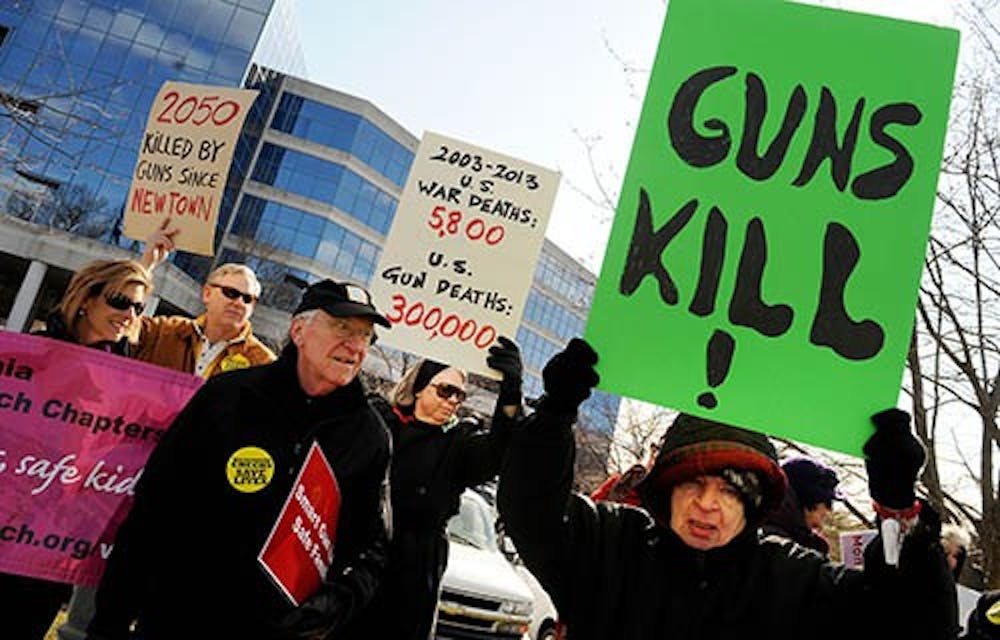WASHINGTON — President Barack Obama heads Monday to the state where a deadly school shooting in December shocked the nation, looking for a breakthrough in his efforts to curb gun violence as the U.S. Congress returns from a two-week recess with gun control legislation high on agenda.
Obama is headed to Connecticut, where a gunman killed 20 young children and six educators in one the worst school shootings ever in the U.S. and where lawmakers, last week, passed one of the strictest gun control laws in the country.
The president is also providing rides to 11 relatives of those killed in the shooting at the Sandy Hook Elementary School so they can attend his gun control speech Monday before heading to Washington on Air Force One to personally encourage senators to back gun legislation that faces tough opposition.
After Obama’s speech in Hartford, the state capital, relatives of seven children and one staffer killed during December’s massacre at the school will travel back to Washington with him, according to the nonprofit organization that works with the families, Sandy Hook Promise.
The administration moved quickly after the shooting amid concerns that the high emotions would settle and politics would go back to normal on one of the country’s most sensitive issues. The top gun lobby has opposed the gun control drive, and the president’s proposals have weakened in the months since the shooting amid fears that the more controversial ones, such as an assault weapons ban, will harm an overall gun control package.
One of Obama senior advisers, Dan Pfeiffer, suggested to ABC on Sunday that the lack of a straightforward vote because of legislative maneuvering would be an insult to people who lost family members in the shooting. He pointed out that senators of both parties had applauded when Obama called for a vote during his State of the Union speech in January.
“Now that the cameras are off and they are not forced to look the Newtown families in the face, now they want to make it harder and filibuster it,” Pfeiffer said.
Senators could start debating gun legislation before week’s end, but leaders might take more time to seek a breakthrough deal on expanding background checks for gun buyers — the proposal seen as having the best chance of passage.
Two influential senators, one from the Democrats and one from opposing Republicans, are working on an agreement that could expand background checks on firearms sales to include gun shows and online transactions, Senate aides said Sunday.
Federal background checks are currently required only for transactions handled by the roughly 55,000 federally licensed firearms dealers. Private sales such as gun show or online purchases are exempt. The system is designed to keep guns from criminals, people with serious mental problems, some drug abusers and others.
After the Connecticut massacre, Obama proposed applying the requirement to virtually all firearms sales. Gun control advocates consider expanded background checks to be the most effective step lawmakers could take to curb gun violence.
The National Rifle Association, the nation’s most powerful gun lobby, and other critics say the checks are ignored by criminals, and they fear that expanding the system could be a step to the government maintaining files on gun owners.
Instead, the NRA proposed arming teachers arming teachers to respond such threats in the future.
In several states, lawmakers quickly proposed legislation that would allow trained teachers to carry hidden guns into the classroom as a “line of defense” against attackers.
So far, South Dakota is the only state to respond with a new law allowing school personnel to carry guns into elementary and high schools. Similar legislation is awaiting the governor’s signature in Kansas. And Arkansas has enacted a new law allowing colleges to let staff with concealed gun permits bring their weapons on campus.
Yet less than four months later, the quest to put guns in schools has stalled in many traditionally gun-friendly states after encountering opposition from educators, reluctance from some governors and ambivalence from legislative leaders more focused on economic initiatives.
The loss of momentum highlights how difficult it can be to advance any gun legislation, whether to adopt greater restrictions or expand the rights to carry weapons.


